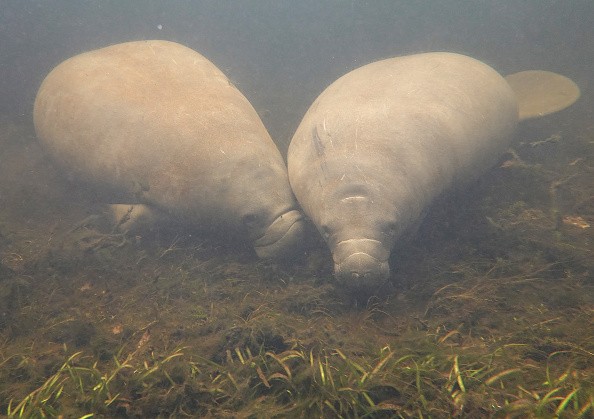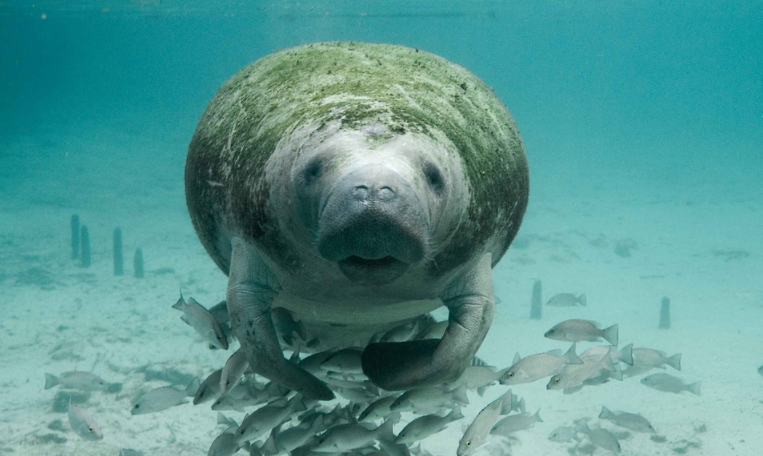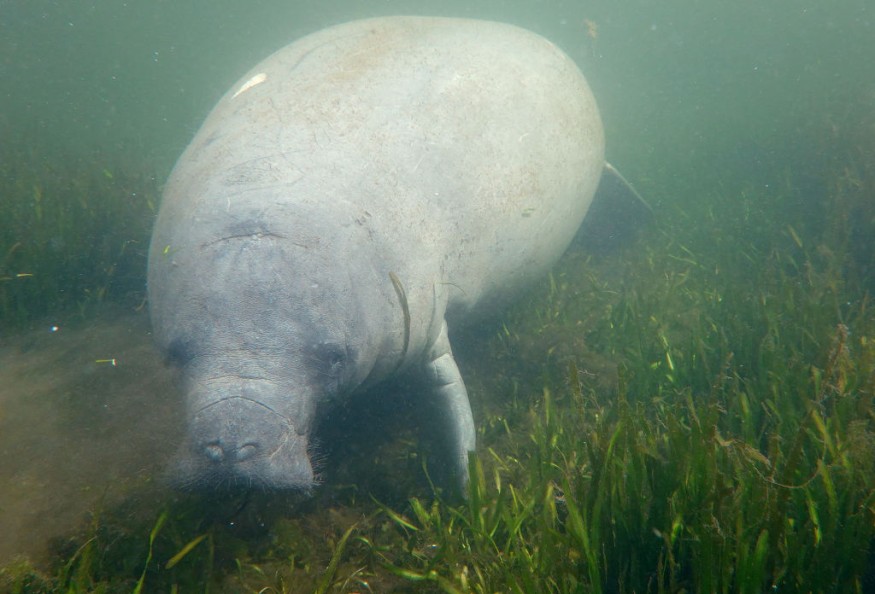Wildlife authorities are trucking in 20,000 pounds of Florida-grown lettuce every week to feed malnourished manatees in the Indian River Lagoon to reduce the impact of ongoing, historic manatee deaths.
For ravenous "sea cows" weighing 1,000 pounds, a head of romaine lettuce might seem like a waste of calories. They're precisely what the doctor ordered for the Florida manatees, though.

Seagrass, the principal food supply for these massive marine creatures, is vanishing in sections of eastern Florida. Manatees have been fed massive amounts of leafy greens for the first time in history by state officials.
A single manatee can chew its way through nearly 100 pounds of lettuce in a single day.
Mass Deaths

Last year, Florida lost a record 1,100 manatees or more than 12 percent of its overall population. According to the group Save the Manatee Club, more than 130 manatees have already perished in 2022, which is significantly higher than the norm for this time of year. The vulnerable West Indian manatee is a subspecies of the Florida manatee.
"It's like nothing we've ever seen before," said Michael Walsh, a professor of aquatic animal health at the University of Florida. Manatee rehab clinics around the state are already overcrowded, as more and more animals come in with evident indications of malnutrition - flat undersides, a lack of neck fat, and even exposed ribs, Walsh said.
According to Walsh, manatees in need of care are running out of physical room in Florida, forcing rehabbers to prioritize. And the stakes are high: in Florida, manatees are a symbol of the tourist business and the ecology as a whole.
The mass death of a much-loved and meticulously cared-for species is a symptom of a larger problem plaguing many ocean environments: pollution and coastal development.
More than a decade of human influences has degraded the entire ecosystem, making manatees significantly more vulnerable to dangers - starting with a plague of algae.
Related Article : Florida Wildlife Officials Will Feed Malnourished Manatees to Save Them From the Brink of Extinction
Manatees population
Manatees are known for their size, yet they carry a lot of fat on their bodies. Because they can only survive in water at least 68 degrees Fahrenheit above freezing, you'll commonly see them in the winter near warm water sources, such as power plant discharge pipes.
The Indian River Lagoon, which stretches over 156 miles between mainland Florida and a barrier island off Florida, is one of these manatee hotspots. Hundreds of animal species and various seagrasses may be found in the lagoon.
Seagrass meadows are one of the most significant elements of every coastal ecosystem, although they don't appear much. They protect the state's economy by preventing erosion, cleaning the water, and providing shelter for fish. They're also food for a variety of creatures, including manatees.
Food Shortage and Other Reasons

Because seagrasses require sunshine to flourish, algae are an issue. Algae can grow so plentiful due to nutrient pollution, such as sewage discharge and farm runoff, that they prevent light from reaching the lagoon's bottom. When the seagrass dies, it may become a source of fertilizer for the algae, allowing it to continue to grow.
The Indian River Lagoon, where hundreds of manatees gather to survive the winter, is now clogged with algae and pollutants, preventing seagrass from growing and manatees from eating. According to Walsh, "tens of thousands of acres of typical grass have been lost." Because it's so cold beyond the lagoon, the animals can't quickly flee to richer, grassier pastures. "An unseen frigid barrier has encircled them."
Under the federal Marine Mammal Protection Act, the state now confronts a record-breaking die-off that has been deemed an "unusual mortality event," a rare classification that requires quick action. In addition to the deaths caused by malnutrition, a lesser number of people have died due to red tide and boating accidents.
For the most recent updates from the animal kingdom, don't forget to follow Nature World News!
© 2025 NatureWorldNews.com All rights reserved. Do not reproduce without permission.





